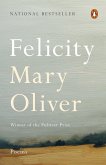Inspired, seminal translations of one of the greatest poets of all time by Edna St. Vincent Millay and George Dillon, now available in a sleek new edition. Charles Baudelaire invented modern poetry, and Flowers of Evil has been a bible for poets from Arthur Rimbaud to T. S. Eliot to Edna St. Vincent Millay, who, with George Dillon, composed an inspired rhymed version of the book published in 1936 and reprinted here, with the French originals, for the first time in many years. Millay and Dillon, while respectful of the spirit of the originals, lay claim to them as to a rightful inheritance, setting Baudelaire's flowing lines to the music of English. The result is one of the most persuasive renditions of the French poet's opulence, his tortured consciousness, and his troubling sensuality, as well as an impressive reimagining of his rhymes and rhythms on a par with Marianne Moore's La Fontaine or Richard Wilbur's Molière. This bilingual edition includes the original French versions of each poem.
Dieser Download kann aus rechtlichen Gründen nur mit Rechnungsadresse in A, B, BG, CY, CZ, D, DK, EW, E, FIN, F, GR, HR, H, IRL, I, LT, L, LR, M, NL, PL, P, R, S, SLO, SK ausgeliefert werden.









